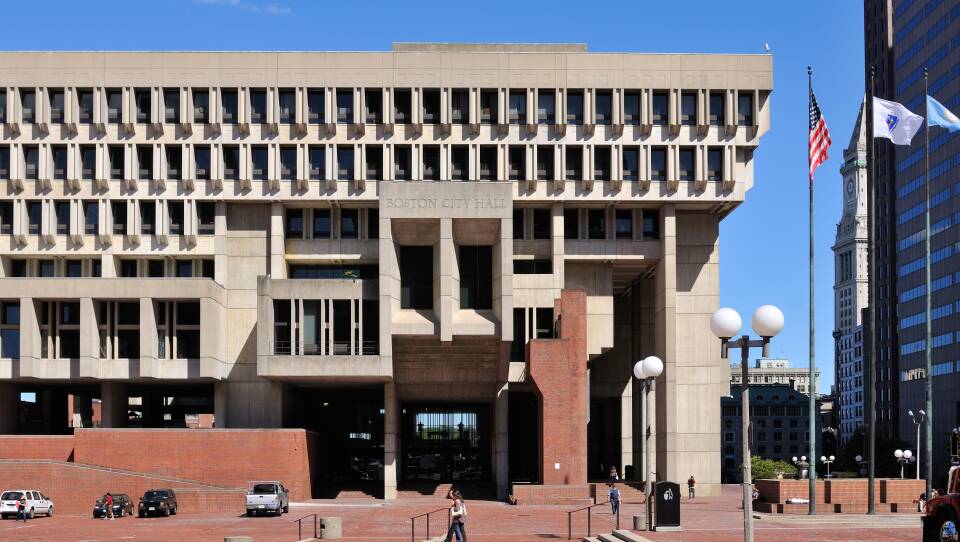The Boston City Council Wednesday approved proposals to implement rent control and restructure the city’s planning and development agency, advancing two major pieces of Mayor Michelle Wu’s legislative agenda forward to state lawmakers.
Both measures passed 11-2, with Councilors Frank Baker and Erin Murphy voting against them.
In a rare, post-vote media appearance, Wu said the council "delivered a strong message" with the rent control approval.
"The city of Boston needs the tools to address our housing crisis," Wu said. "We hear from residents across every single neighborhood just how dire it is and we see families who are getting pushed out of the communities that they grew up in and helped to build. This is affecting everything from how our businesses and economy can recover to our school enrollment and the stability of every part of our neighborhoods."
The topic of rent control was controversial even before the city began discussing Wu’s proposal in earnest.
The mayor is seeking to usurp a 1990s statewide ban on the policy and restore a local form of rent control in Boston. Even though a recent poll suggests the policy is popular among likely voters statewide, the Massachusetts Legislature has shown little appetite for taking up the issue .
"The goal, as always, is to be in a conversation with our city government, with our residents, with our state government," Wu said when asked about the measure's likelihood of success on Beacon Hill. "We all represent the same constituents, we all hear from the same families who are struggling to hang on in the city. ... I think we all share an urgency in knowing that this can't stand for Boston."
Wu has largely been alone as a city executive championing the issue. Mayors from several of Massachusetts' largest cities, including Cambridge, Fall River and Lynn, have indicated they have no plans to pursue their own rent control proposals. So far, only the city of Somerville, which previously had a rent control policy, has begun exploring a local option.
Somerville City Council President Ben Ewen-Campen said the city's proposal is in its early stages, but they hope to present a finalized version for approval on Beacon Hill this fall. He noted that Somerville has previously sought — and failed — to bring back rent control. But he is more hopeful this time around.
"I think we're at a really important point where we have a governor who has indicated that she is supportive of municipalities taking this step," Ewen-Campen said.
He said he considers rent control a reasonable approach to help working class people live in the city.
"The extreme position is what we have now," he explained, "where some real estate investor or some LLC can buy up an apartment building and jack up the rent 30%, 40%, 100% and just evict people who have been in Somerville for years and have kids in the schools."
In Boston, Wu’s rent control proposal has upset both those with interests in the real estate sector and progressive housing advocates. The MassLandlords trade group and the Greater Boston Real Estate Board have publicly lobbied against Wu’s proposal, arguing that it would stifle housing production and worsen the city’s housing crisis.
MassLandlords also argued Wu’s proposal, which exempts owners who live with their tenants and own six units or less, leaves out landlords who don’t live with their tenants, but still reside within the city of Boston.
Councilor Michael Flaherty proposed an ultimately unsuccessful amendment to address that concern. Multiple councilors spoke against it, arguing that there’s a distinction between landlords who live with their renters and those who own investment properties.
Meanwhile, housing advocates wanted to tighten portions of Wu’s plan by lowering the annual increase beyond 10% in high inflation years, or the rate of inflation plus 6% in most other years.
Wu’s proposal exempts college-operated dormitories and residential buildings for 15 years beginning from the date of their certificate of occupancy. It would also establish eviction protections and bar a landlord from recovering possession of a unit unless a housing court approves.
Wu’s agency restructure plan would, if approved by the Legislature and Gov. Maura Healey, formally dissolve the Boston Redevelopment Authority, the official entity created in 1957 to oversee the city’s development activities in the era of urban renewal. The measure would codify a focus on three key planning principles — resilience, affordability and equity — and would also dissolve the partner Economic Development Industrial Corporation, established in 1971 to lead local economic development activities.
Wu said Wednesday she expects "strong" support for the measure at the State House.
The BRA began doing business as the Boston Planning and Development Agency in 2016 when then-Mayor Marty Walsh made a $600,000 bid to rebrand the agency to shed its reputation as inefficient and overly responsive to the desires of developers. Wu’s proposal would maintain the rebranded name.
Councilors approved one amendment to Wu’s plan that maintains urban renewal land disposition agreements, area-specific restrictions that spell out what can and cannot be built in a given place.
GBH News reporter Tori Bedford contributed reporting on Somerville's rent control proposal.









